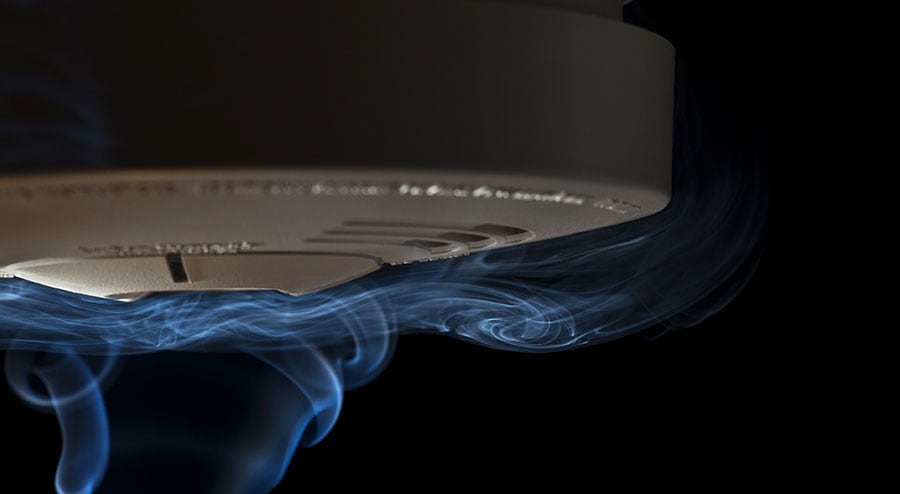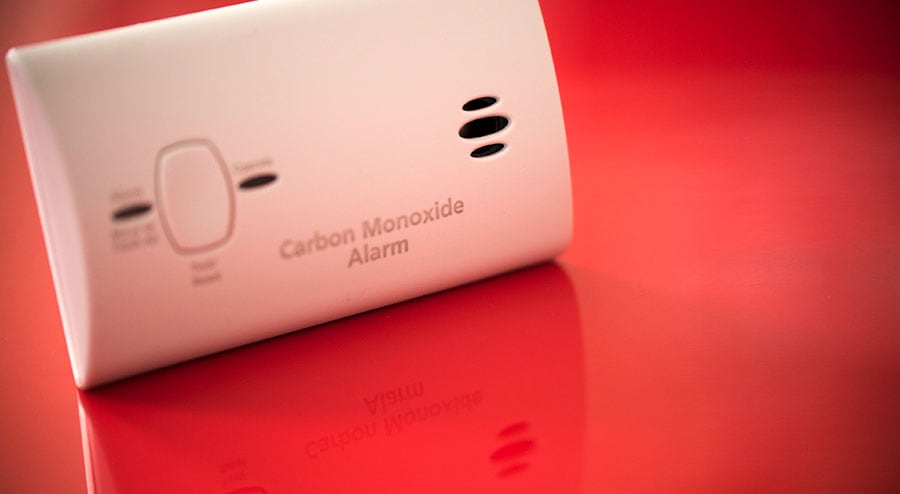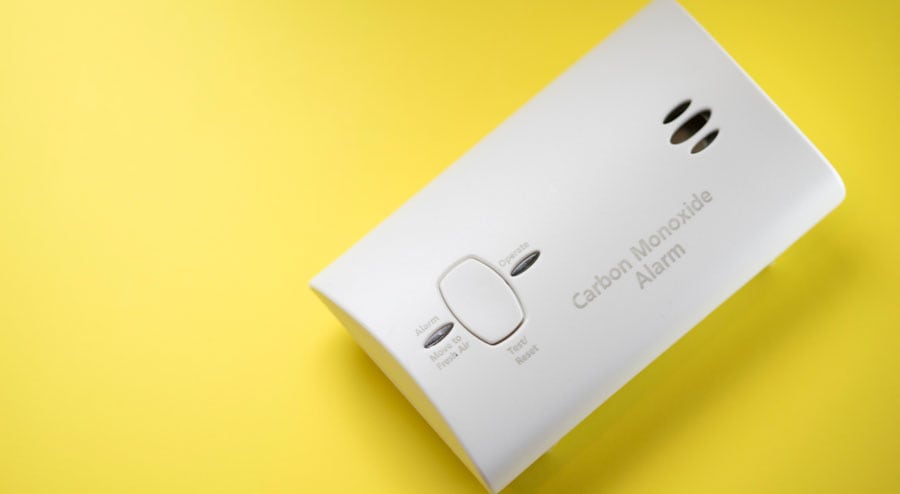Since the industrial revolution in the 18th century, man has been doing things that affect the air quality by polluting the air that we breathe.
From the factories we run to the cars we drive and even the kind of fuel we use in our homes, all these things contribute to air pollution and smog. While every single one of us is affected in one way or another by this poor air quality, there are a select few that are particularly at risk:
- Those with lung issues
- Those with heart disease
- Those who suffer from allergies
These people are particularly afflicted by the kind of air they breathe and the pollution of that air is something they suffer every day. As a conscious human being, it is your duty to ensure that this pollution is reduced for the greater good of our planet. With that in mind, here are some things that you can do to protect yourself from harmful air pollutants.
Protecting Yourself From Harmful Pollutants
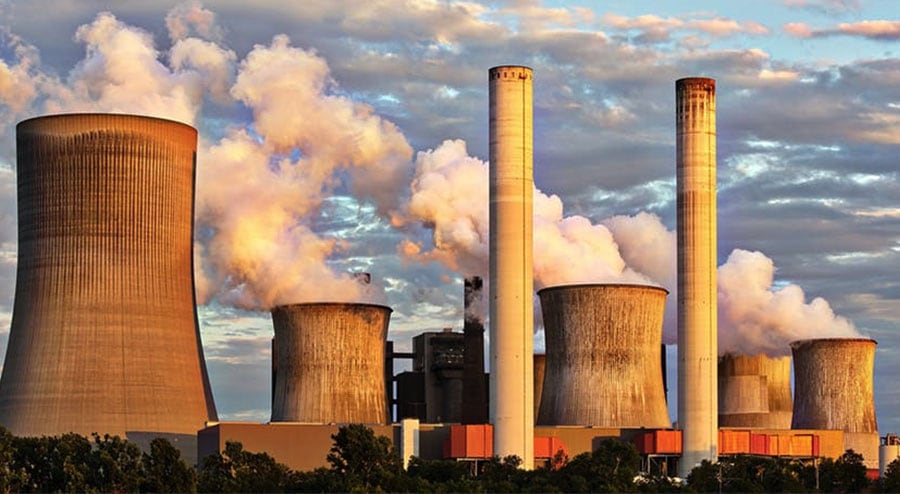
Would you knowingly breathe in toxic air? Of course not. Apart from the fact that it would probably smell foul, there are some serious effects it may have on your health that will see your medical bill go up. Toxic air can:
- Irritate your senses
- Put you at a higher risk of asthma
- Predisposes you to a host of respiratory diseases
- Decrease your lung function and capacity
- Increasingly ages your lungs
- Shorten your lifespan
These are all risks associated with breathing in toxins in the air. As things stand today, we are all breathing in an alarming number of toxins in our day to day air, especially those of us who live in urban areas.
The Hidden Dangers In The Air We Breathe
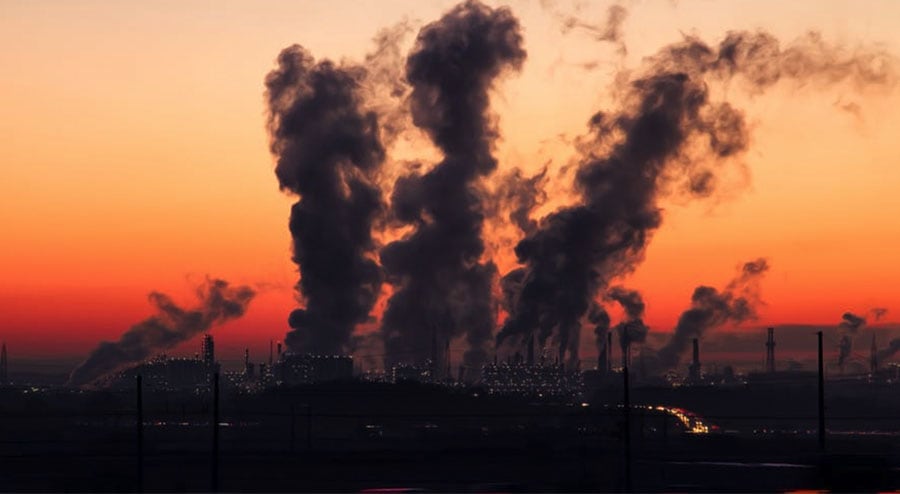
According to the experts at the World Health Organization (WHO), air pollution is now one of the leading health hazards we face. In fact, it is estimated that this pollution is responsible for up to 7 million premature deaths each year.
“The risks from air pollution are now far greater than previously thought or understood, particularly for heart disease and strokes. Few risks have a greater impact on global health today than air pollution; the evidence signals the need for concerted action to clean up the air we all breathe.” — Dr. Maria Neira, Director of WHO’s Department of Public Health, Environmental and Social Determinants of Health
The problem is that it is pollution from both outdoor and indoor sources of breathing air that is making the situation worse. While for the most part, there have been great steps taken towards cleaning up the air outside; steps such as:
- Shifting to cleaner power generation methods for our vehicles. (less fossil fuel and more electric and green vehicles are being produced)
- Clean technologies are being employed to reduce smokestack emissions from our industries.
- More homes have greatly improved energy efficiency levels to reduce the amount of power needed to run them.
- Low emission fuels and the use of renewable combustion-free power has helped clean up our power generation efforts.
- We are exploring better waste management methods to ensure that we recycle as much as possible and reduce the number of landfills on the planet.
While these efforts, if sustained, will eventually clean up the air we breathe outside, it is our sole duty to ensure that the air we breathe while indoors is clean as well. Here are some things we can do to reduce air pollution in our own homes and to ensure that we protect ourselves against air pollution:
Tips For Protecting Yourself Against Air Pollution

Use An App To Keep You Updated On Pollution Levels
There seems to be an app for almost everything we do nowadays. So, it is only befitting that there would be apps to help you protect yourself from one of the leading health hazards on the planet, including indoor air pollution. Here are some apps that could come handy when trying to avoid high levels of air pollution around your area:
- CityAir: This app warns you when the pollution levels are particularly These levels tend to change with the times during each day and if you can tell when not to go out for that jog or to walk the dog, then you might just be able to keep your exposure to a minimum. The app also gives you tailored advice on how to reduce your emissions as well as exposure.
- Plume Air Report: This one tells you the kind of pollution rates going on around you in real-time. It also gives you advice on when it is a good time to do certain activities to minimize your exposure.
- CleanSpace Air Pollution: This app gives you a complete breakdown of the kind of pollution around you. (both inside and outside)
Of these three apps, CleanSpace Air Pollution is more practical for people who are looking to minimize their exposure to indoor air pollution, especially when in their own homes.
Run A Check For The Kind Of Contaminants In Your Home
The problem with the indoor solution is that the levels are often a bit more concentrated than they are outside. This puts you, your family and even your family pet at greater risk of contamination and exposure to toxic fumes.
Although the pollution in your home is easy enough to deal with considering it is an environment you can monitor more closely and control, it is often best to know what it is that is affecting the indoor air quality first and what kind of pollution it is that is in your home. The different things that cause pollution in your home include:
- Poor ventilation
- Humidity levels
- Other gases such as radon, carbon monoxide, and ground-level ozone, as well as particle pollution
Of all these causes, radon is perhaps the most dangerous to affect the indoor air quality considering the fact that it is a tasteless, colorless, and odorless gas. It is also radioactive! Radon is most dangerous because there is no way for you to detect whether or not there is a high concentration of radon in your home.
Although it is present in almost every home, the concentration levels are usually too low to cause any harm in terms of indoor air pollution. You can hire a professional to run periodic check just to make sure that those levels haven’t gone up to a toxic level.
Keep Your Windows Open

There are several reasons why you need to let air circulate freely inside your home every day:
- It regulates humidity levels
- It cleans up the air inside your home
- Minimizes the level of indoor air pollution due to fresh air
Most people, especially those who live in inner-city locations, tend to keep their windows closed for security purposes. To avoid keeping high levels of contamination within your home, make it a habit to open your windows as often as you can—even if it is just for 15 minutes each day.
This will increase air flow and circulation in your home and ensure that you are at least breathing clean air for a huge part of the day.
Invest In Dehumidifiers And Air Purifiers
Because you may not be able to open your windows during winter for fear of letting the warm air out and increasing indoor air pollutants, you should invest in a high-quality dehumidifier and air purification system to ensure clean air.
A good air purification system will ensure that there is no pollen, smoke, or irritants in the air within your home while a dehumidifier will rid the air of excess moisture thus killing mold and ridding your home of harmful bacteria that thrive in moisture and humid conditions.
It is also advisable to nurture some house plants. These will not only brighten up your home, but they will also filter out most of the pollutants within by drawing carbon dioxide and releasing oxygen indoors.
Start Drinking Green Tea
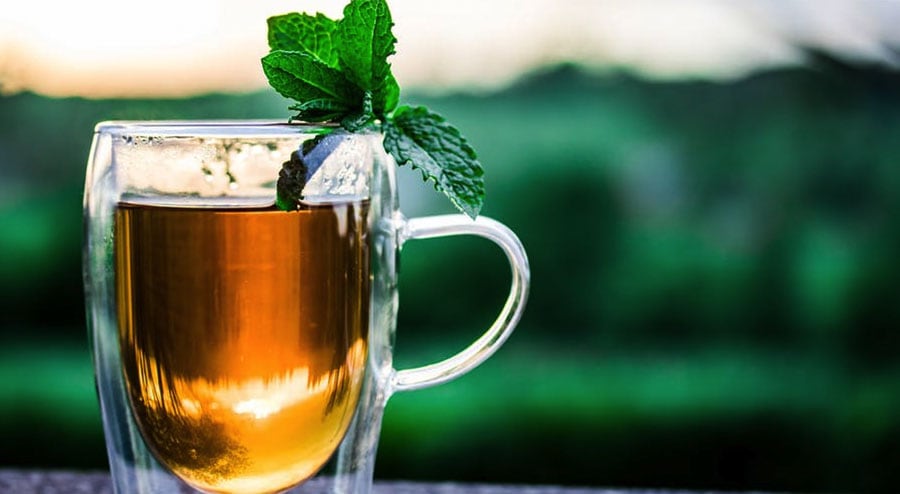
This is more of a remedy after the fact that a deterrent to it. Green tea contains high levels of antioxidants that can help counteract the exposure to indoor air pollutants we already have in our homes.
These antioxidants react with the free radicals and toxins found in our polluted air to stop them from doing as much damage. These free radicals and antioxidants cause premature ageing and ruin our skins. In the worst cases, they may be a doorway for cancer. Apart from green tea, you could also eat:
- More vegetables
- More fruits
All these clean up your system every day and prolong the life and integrity of your skin. There are other things that you can do to minimize or reduce your exposure to toxins and free radicals that are found in our polluted air. These include:
- Eating more organic foods
- Walking and exercising more
- Using more natural cleaning agents than toxic chemicals
- Using a beauty regime that does not encourage indoor pollution
- Finding better and more efficient ways to process waste at home
- Avoid using air fresheners and candles
- Clean your home thoroughly and often
- Wash stuffed toys and sheets to remove dust mites
Many of these things will require you to remain vigilant every single day. This is the only way to ensure that you are minimizing your levels of exposure to air pollution. Although we cannot get rid of pollutants entirely, we can at least make sure to keep ourselves safe and protected from the worst of them.
Sources
- https://www.wikihow.com/Protect-Yourself-from-Air-Pollutionhttps://experiencelife.com/article/how-to-protect-yourself-from-harmful-air-pollutants/
- https://www.nrdc.org/stories/how-protect-yourself-outdoor-air-pollutants
- https://www.healthline.com/health/protect-yourself-and-your-family-air-pollution
- https://timesofindia.indiatimes.com/life-style/health-fitness/health-news/effective-tips-to-prevent-yourself-from-smog-air-pollution/articleshow/61574445.cms
- https://www.axappphealthcare.co.uk/health-information/allergies/7-steps-to-protect-yourself-from-the-effects-of-smog/
- https://www.lalpathlabs.com/blog/how-to-protect-yourself-and-your-family-from-air-pollution/


